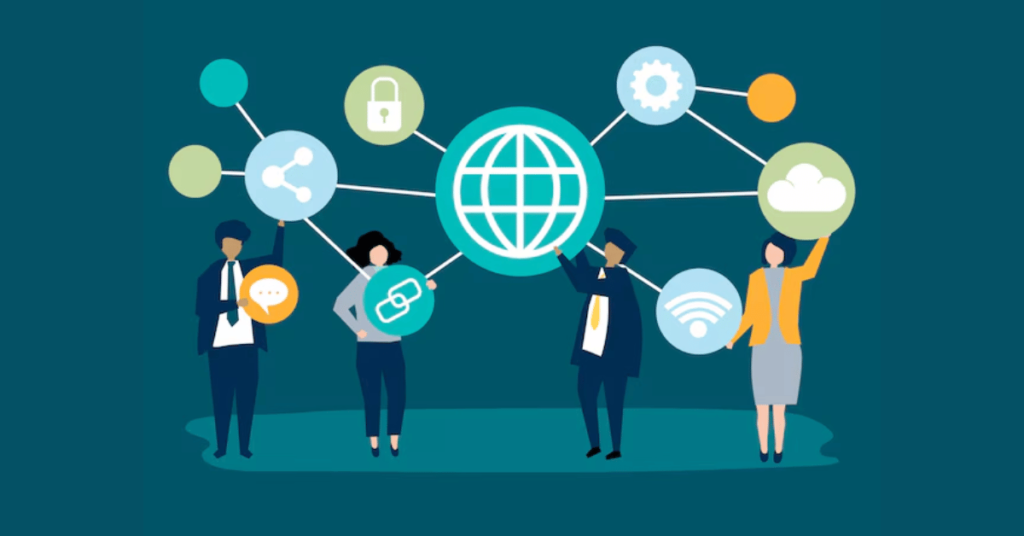Mainstream social media dominates the digital world. Concerns about privacy, data ownership, and algorithm manipulation are growing. Platforms like Facebook, Twitter, and Instagram are everywhere. Yet, their centralized systems and ad-driven models raise serious questions. Is user data secure? Is personal information used ethically? What about the Live Casino Cookie? Decentralized social networks offer a new path. They give users more control, privacy, and ownership of their online identities.
Have You Heard About Decentralized Social Network?
Decentralized social networks (DSNs) run on distributed systems. They often use blockchain or peer-to-peer protocols. Unlike centralized platforms, they don’t rely on a single server. Instead, they spread data across a network of nodes. This removes single points of control and failure. It also makes the networks more resilient and transparent.
DSNs focus on user autonomy. They let people own their data. Users control how their information is shared, stored, or monetized. No central authority interferes. This meets the growing demand for privacy and ethical data use.
Identifying DSNs
- Privacy and Security DSNs use end-to-end encryption and decentralized storage. This keeps sensitive data safe from breaches. Platforms like Mastodon and Diaspora offer strong privacy features. They protect user communications and identities.
- Data Ownership Users own their content and data in decentralized systems. Platforms like Steemit and Lens Protocol let creators monetize directly. There are no intermediaries taking large cuts.
- Censorship Resistance Decentralized platforms support free expression. They reduce centralized control, making them less prone to censorship. While challenges exist, they attract users seeking freedom from government or corporate overreach.
- Community Governance Many DSNs use community-driven governance. Users vote on policies and changes. This democratic system promotes transparency and inclusivity.
DSNs Of The World
Several decentralized social networks have gained traction as viable alternatives to traditional platforms:
- Mastodon Mastodon is a federated social network. Users join servers called “instances,” each tailored to specific interests or communities. Instances run independently but connect within the Mastodon network. This model gives users control while keeping a shared, connected experience.
Diaspora Diaspora is one of the first decentralized social platforms. Users create “pods,” which are personal servers where their data is stored. Pods connect to form a global network. Diaspora focuses on privacy, letting users control what data they share and with whom.
Steemit Steemit is a content-sharing platform built on the Steem blockchain. Users earn cryptocurrency by creating and curating content. This rewards creators directly and moves away from ad-based revenue models.
Lens Protocol Lens Protocol is a blockchain-based platform. It lets users own their social graphs and data. Apps built on Lens work seamlessly together, offering a unified experience for users who value digital ownership.
Bluesky Bluesky is an initiative started by former Twitter CEO Jack Dorsey. It aims to create an open, decentralized standard for social media. By separating the network from the platform, Bluesky envisions a more user-focused and interoperable ecosystem.
Setbacks To Surpass
Despite their potential, decentralized social networks face significant hurdles:
- Usability Many DSNs have complex onboarding processes and user interfaces that can deter mainstream adoption. Simplifying these systems is crucial for reaching a wider audience.
- Network Effects Mainstream platforms benefit from massive user bases, creating a “network effect” that reinforces their dominance. DSNs must find ways to attract users without the same critical mass of participants.
- Content Moderation Decentralize
- d networks struggle with content moderation due to their distributed nature. Striking a balance between free expression and curbing harmful content remains a challenge.
- Scalability Blockchain-based platforms, in particular, face scalability issues, including high transaction costs and slow processing times. Innovations in technology are needed to address these limitations.
The Path Forward
As privacy and data security concerns rise, decentralized social networks are gaining attention. They offer user autonomy and follow ethical principles. This vision appeals to a growing, informed audience.
To succeed, these platforms must focus on user experience. They need to tackle technical challenges and grow their communities sustainably. Working with developers, policymakers, and advocacy groups can help. Collaboration can set standards and make decentralized networks easy to use and widely accepted.
Shifting Interaction
Decentralized social networks are changing how we interact online. They prioritize user privacy, data ownership, and community governance. These platforms offer a strong alternative to mainstream social media.
As technology advances and awareness increases, decentralized networks could transform digital interaction. They empower individuals and promote a fairer, more equitable internet.







